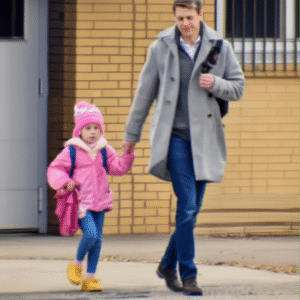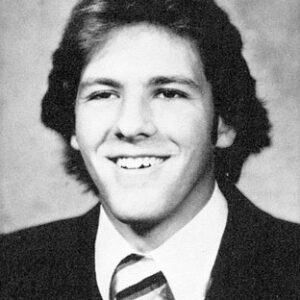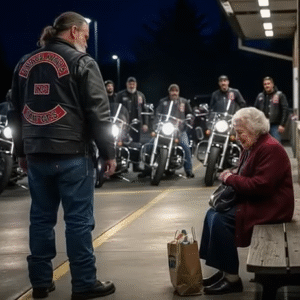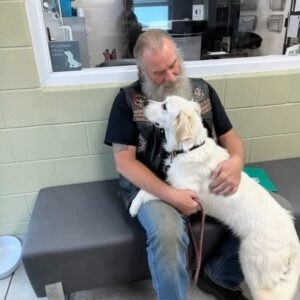When I was seventeen, Lucy was the first person I ever loved. We dreamed together beneath school bleachers
and promised that if life took us separate ways, we would meet again at sixty-five on a quiet park bench
under two old trees. Life moved forward — I built a family, weathered a divorce, welcomed grandchildren,
and carried memories like folded letters in my heart. Yet when the day came, I returned to that bench feeling like a boy again, nervous and hopeful.
But instead of Lucy, a man stood waiting — her husband, Arthur. He told me she wouldn’t come, believing that
old promises had no place in their life. Before the moment could fully settle, I saw Lucy rushing toward us,
determined to honor the past while standing firmly in her present. The three of us sat for coffee afterward,
nostalgia filling the spaces between us, and I realized something important: some loves stay with us not to be revived, but to remind us who we once were.
A week later, Arthur knocked on my door — not angry, but uncertain. I assured him I wasn’t trying to reclaim the past,
only to acknowledge what shaped it. In a surprising turn, he invited me to a family barbecue Lucy insisted on hosting.
There, she introduced me to Grace — warm-smiled, gentle-spoken, someone who had weathered her own losses.
What began as a simple introduction slowly grew into quiet companionship: letters tucked into books, shared morning walks, and laughter that felt easy and kind.
Months later, standing beside Lucy once more — this time as friends watching the people we loved wade into ocean
waves — I understood something clearly. Lucy and I were never meant to return to what we were; we were meant
to help each other move forward. Grace slipped a seashell into my palm and told me she didn’t need to be
first — only part of the rest of the story. As the tide whispered against the sand, I held her hand and
knew I was exactly where life meant me to be — not in the past, but walking gently into whatever time we still had, with gratitude for every chapter that led here.





